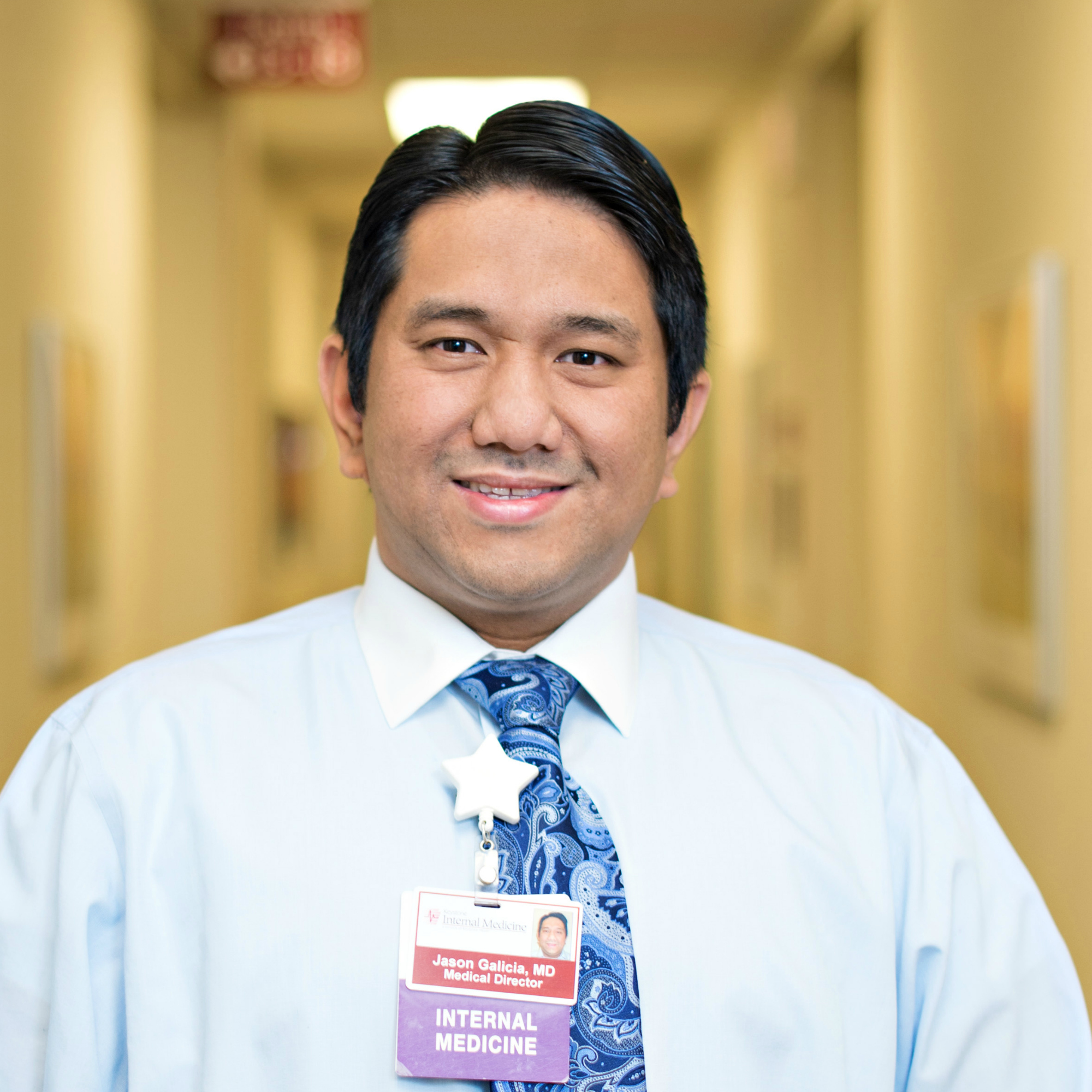Hypertension can put you at risk for a number of serious health issues. Dr. Jason Galicia, board-certified internal  medicine physician and medical director of Keystone Internal Medicine, shares what you need to know about this common health problem.
medicine physician and medical director of Keystone Internal Medicine, shares what you need to know about this common health problem.
What is hypertension?
Hypertension is a condition that puts you at risk for heart attack, stroke, and kidney disease. It does not usually cause symptoms, but it can be serious. When your doctor or nurse tells you your blood pressure, he or she will say 2 numbers. For example, your doctor or nurse might say that your blood pressure is “140 over 90.” The top number is the pressure inside your arteries when your heart is contracting. The bottom number is the pressure inside your arteries when your heart is relaxed.
Who is at risk?
Hypertension is a common health problem. In the United States, approximately 32 percent of African Americans and 23 percent of white people and Mexican Americans have hypertension. It is more common as people grow older. It does not usually cause any symptoms except when it approaches certain high levels causing dizziness, neck pain, and blurred vision. Left untreated, it can lead to a variety of complications, including heart disease and stroke. The risk of these complications increases as your blood pressure rises above 110/75, which is still in the healthy range.
Treatment
Treating high blood pressure can reduce your risk of heart attack, stroke, and death and usually begins with lifestyle changes. Making these lifestyle changes involves little or no risk. Recommended changes include: reduce the amount of salt in your diet, lose weight if you are overweight or obese, avoid drinking too much alcohol, stop smoking, and exercise at least 30 minutes per day most days of the week. A medicine to lower blood pressure may be recommended if your blood pressure is consistently high, usually at or above 140/90 (or above 150/90 in older people).
Treatment
Treatment with medicine is recommended at a lower blood pressure for some people with atherosclerosis (fatty deposits lining the arteries, as in coronary heart disease, stroke, or peripheral artery disease), or chronic kidney disease complicated by protein in the urine. It’s important to see your physician once a year if you are greater than 50 years old for a physical examination to detect any changes in your blood pressure. See your doctor if you experience blurred vision, neck pain, and headaches especially when you have a history of high blood pressure.
Additional Information
Many people are anxious when seeing a doctor or nurse causing elevated blood pressure readings. As a result, you are not diagnosed with hypertension unless your blood pressure is consistently high at two office visits at least one week apart. The only exceptions to this are if the blood pressure is very high or if you have damage from high blood pressure, such as heart, eye, or kidney injury. Before a decision is made to begin treatment, you may be asked to measure your blood pressure at home or work.
This article contains general information only and should not be used as a substitute for professional diagnosis, treatment or care by a qualified health care provider.




